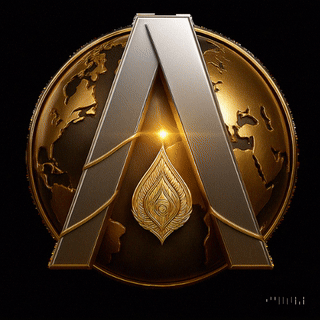What Does a Harvard-Ready 8th Grade Reading List Look Like?
Every ambitious parent asks the question: "Are we doing enough?" When you're preparing a student for the intellectual rigors of universities like Harvard, Stanford, or Yale, that question takes on a new weight. It’s not just about meeting state requirements; it’s about building a deep, interconnected scaffold of knowledge that will serve them for a lifetime.
At ARKTIK Institute, we believe a truly elite education is built on a direct engagement with the foundational texts of our civilization. But our approach is unique. We don't just teach the Western Canon; we integrate it within our Abrahamic Reconciliation Model. A student who has wrestled with Plato, debated the Federalist Papers, and absorbed the wisdom of the Sages is not just a good student—they are an emerging scholar with moral clarity.
This is not a theoretical exercise. This is a look inside our own 08_Foundational_Texts_Library—the core of the ARKTIK curriculum.
1. Literature: The Foundation of Moral Imagination
A Tale of Two Cities by Charles Dickens: A masterclass in plot, theme, and historical narrative.
The Adventures of Huckleberry Finn by Mark Twain: A profound (and challenging) look at freedom and morality. We frame this as a parent co-read to facilitate essential family discussions.
Macbeth by William Shakespeare: A working knowledge of Shakespeare is non-negotiable. Macbeth is a gripping entry into themes of ambition and guilt.
The Pilgrim’s Progress by John Bunyan: A cornerstone of Western literature and an essential allegory of the Christian journey.
2. Civics: Understanding the Architecture of Freedom
The U.S. Foundational Documents: We require direct study of The Declaration of Independence, the Constitution, and the Bill of Rights.
The Federalist Papers (Nos. 10 & 51): To understand America, one must understand the arguments for its structure. Reading Madison and Hamilton on factions and the separation of powers is non-negotiable.
3. History & Philosophy: Engaging with First Principles
Plato's Apology & Crito: A student must witness Socrates’ defense of his life and his duty to the law. This is the bedrock of Western philosophical inquiry.
Pirkei Avot (Ethics of the Fathers): A foundational text of Jewish ethics. This collection of wisdom from the Sages serves as the Abrahamic guide to a virtuous life, teaching personal responsibility, humility, and the pursuit of wisdom.
Candide by Voltaire: A brilliant and biting satire of philosophical optimism. As a parent co-read, this foundational text of the Enlightenment teaches a student to analyze complex irony and question the world around them.
The Prince by Niccolò Machiavelli: As a parent co-read, this text provides a pragmatic, often ruthless, look at power, teaching critical thinking about leadership.
4. Strategy, Diplomacy, and Ancient Texts
A prepared mind thinks strategically and globally.
The Art of War by Sun Tzu: A timeless guide to strategy that transcends the battlefield.
The Amarna Letters: Selections from these 3,400-year-old diplomatic tablets show a student what primary-source history really looks like.
The Book of Enoch: As a parent co-read, selections from this ancient apocryphal text provide deep historical context for the Second Temple period and foster theological curiosity.
5. Science: The History of Discovery
We teach science by studying the minds of the discoverers themselves.
Selections from Archimedes: The father of mathematical physics, his work shows how the physical world can be understood through mathematical principles.
Gregor Mendel's Experiments on Plant Hybridization: Understand the birth of genetics from its source.
Michael Faraday's The Chemical History of a Candle: A masterclass in scientific observation and explanation.
Isaac Newton's Rules of Reasoning in Philosophy: Learn the principles of the scientific method from the man who codified them.
This Isn't Just a List—It's a Philosophy in Action.
This reading list is designed to do more than build knowledge; it’s designed to build a leader. It cultivates intellectual curiosity and moral clarity by grounding a classical education in the rich soil of the Abrahamic tradition. This is the ARKTIK difference.
Is your child ready to move beyond the textbook? Schedule a free consultation with our team to learn more about our full G/T programs.

